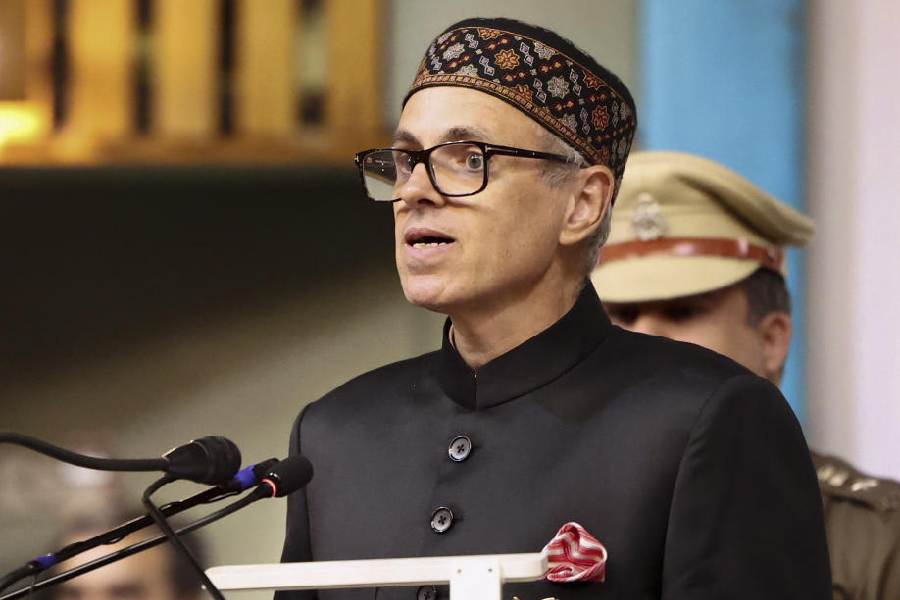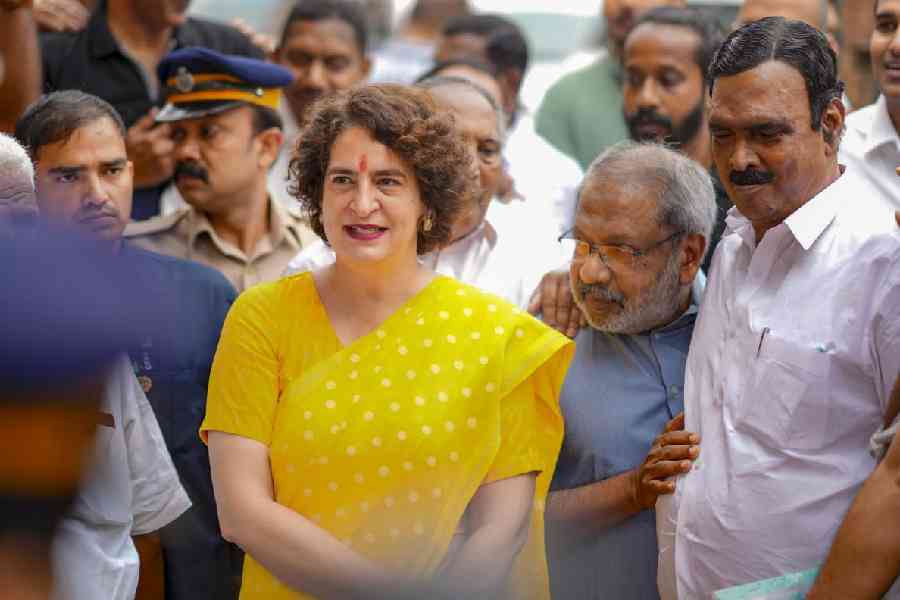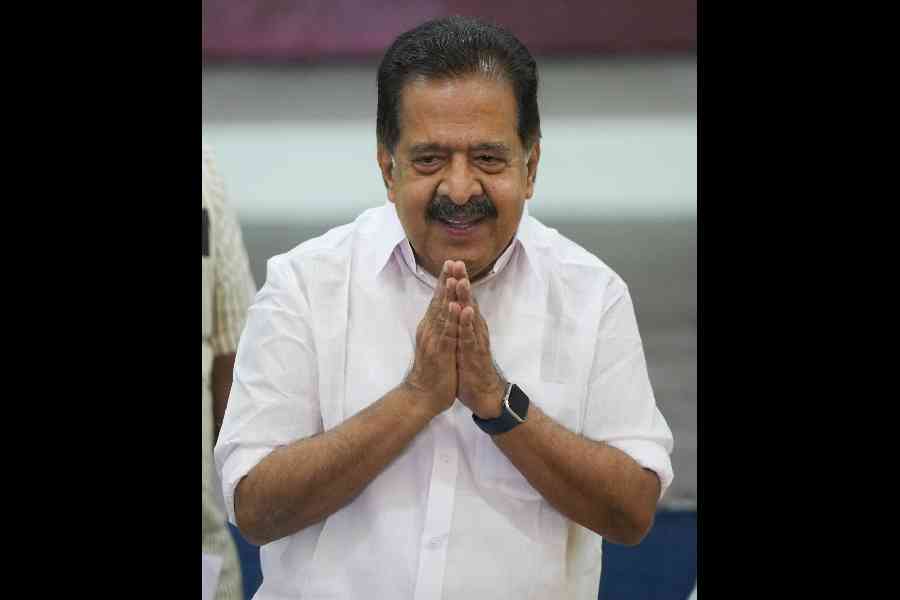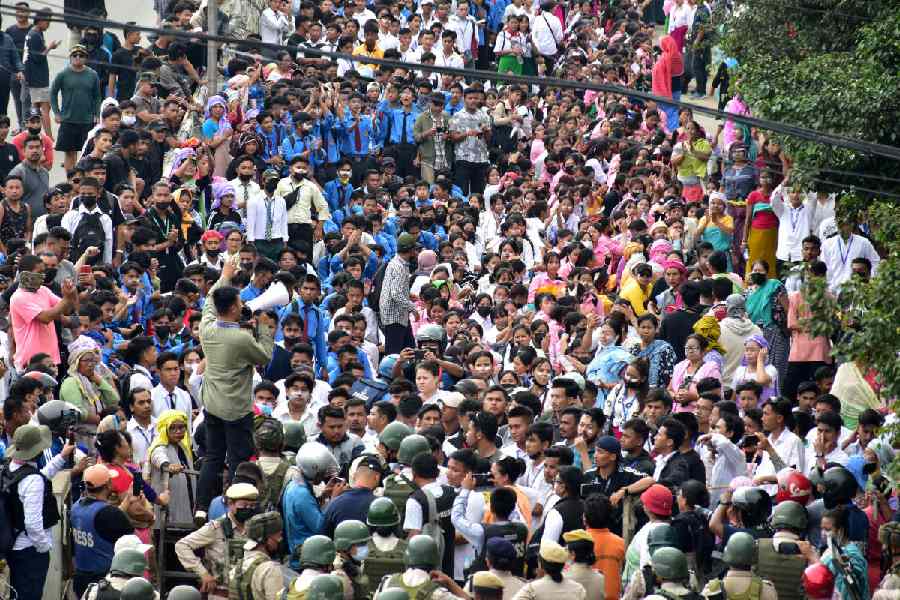Identity crisis
Sir — Unlike true emotions, one should always wear his or her identity on sleeves. Switzerland, it seems, is no exception. The world’s most popular chocolate brand, Toblerone, which is synonymous with Swiss identity and displays the iconic Matterhorn mountain peak on its packaging, will no longer be allowed to do so. The company is shifting part of its production base to Slovakia this year and the stringent rules about ‘Swissness’ dictate that products cannot use national symbols if not exclusively made in the country. While customers may be less interested in whether it is the picture of the Alps or the Carpathian range on the packaging, one cannot deny the fact that the Swiss rule may be a tactic to disown the product in case there is a drop in quality.
Dhruv Khanna, Mumbai
Power play
Sir — After Mao Zedong, who was the principal architect of modern China, Xi Jinping has now consolidated his position as the country’s indisputable leader by winning a third consecutive term of presidency (“Xi seals his political superiority”, Mar 11). Xi has also hinted at his dictatorial ambitions by calling for the strengthening of China’s armed forces into a “Great Wall of Steel”. It seems that China is charting a similar path to that of Russia by attempting to engage the United States of America in a Cold War. However, Xi should take lessons from the collapse of the Soviet Union and think twice before adopting such an aggressive stance against the West. The US already has massive defence deployment in the Indo-Pacific — a region China has been eyeing for long. Both sides should thus exercise caution as the world cannot afford another war.
Dattaprasad Shirodkar, Mumbai
Sir — With Xi Jinping getting re-elected as the president and Li Qiang, a pro-business politician from Xi’s inner circle, being sworn in as the new prime minister, China’s politics should be closely watched by the rest of the world in the coming years (“Xi’s aide Li Qiang confirmed as new PM”, Mar 12). Facing no challenges from within the government, Xi is going to advance his expansionist plans in order to establish China as a global superpower against the US. This can have adverse implications on geopolitics.
Kirti Wadhawan, Kanpur
Sir — The historic agreement brokered by China between the two arch-rivals, Saudi Arabia and Iran, is significant (“China aided deal challenges US”, Mar 12). First, the deal will restore diplomatic channels between the two sides and reopen embassies after several years of instability. The rivalry has been responsible for fomenting regional tensions in Yemen, Lebanon and Syria. Second, China and Iran are allies owing to their mutual adversarial relations with the United States of America. By bringing the two hostile regional powers together, it seems that China is asserting its role as a power player to counter American influence.
Gregory Fernandes, Mumbai
Personality cult
Sir — In his column, “Unbroken spell” (Mar 9), Sankarshan Thakur describes how Narendra Modi’s cult of “red-eye” and “‘56 inch’ braggadocio” belies India’s weak standing on crucial matters. In spite of repeated aggression by Chinese troops on India’s borders, the ruling dispensation has failed to condemn China. More distressing is the fact that the foreign minister, S. Jaishankar, has stated that India cannot pick a war with China since the latter is the bigger economy. Thakur also rightly recalled the events of 1971 to delineate how the then regime of Indira Gandhi fearlessly took necessary action despite receiving threats from the economically stronger United States of America. It is a pity that the ruling dispensation is justifying India’s humiliations at the hands of China.
Sujit De, Calcutta
Dubious action
Sir — The Bharatiya Janata Party dispensation had strategically selected Jagdeep Dhankhar, a staunch Rashtriya Swayamsevak Sangh loyalist, as its candidate for the vice-president to further its majoritarian agenda in the Parliament (“Dhankhar rouses people against Opposition”, Mar 12). Ever since taking over his role as the vice-president, Dhankhar has left no stone unturned to denigrate the Opposition leaders. This dilutes his constitutional position.
K. Nehru Patnaik, Visakhapatnam
Sir — Jagdeep Dhankhar must not forget that he is the vice-president of India and not a functionary of the saffron party. His criticism of the speech given by the Congress leader, Rahul Gandhi, in London as the latter’s bid to defame India is an example of this. Dhankhar has repeatedly accused the Opposition members of disrupting Parliament whereas the government itself has been blocking discussions on crucial national issues.
Murtaza Ahmad, Calcutta
Brain drain
Sir — Most of the global tech giants are headed by Indian-origin chief executive officers at present. The excellence of the diaspora fills our hearts with pride. However, one cannot deny the fact that the absence of the latest technology and infrastructure in India is causing professionals to migrate to other countries. Students are being attracted by better salaries and respectable designations offered by foreign companies. The government should thus implement changes to arrest this brain drain.
Swati Pandey, Ujjain
Sir — The exodus of Indian talent is on the rise. In 2022, nearly 2.25 lakh people renounced their Indian citizenship to settle abroad. The loss of manpower will take a toll on the domestic economy, which is already reeling from the effects of the pandemic.
Gunjan Datta, Calcutta










